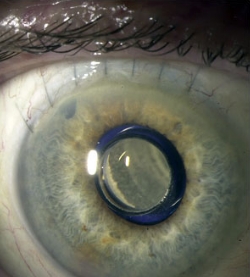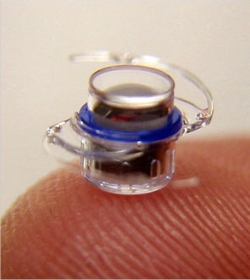 My mother was decidedly vain her whole life. She’d been exceptionally good looking in her youth, which made it especially difficult to accept the slow physical decay of aging.
My mother was decidedly vain her whole life. She’d been exceptionally good looking in her youth, which made it especially difficult to accept the slow physical decay of aging.
Surely it must be easier in our culture to accept the wrinkles, sags and bulges that come with advancing age if one has never thought of oneself as particularly attractive. Or if one has cared little about appearances. Admittedly, this is an increasingly rare point of view in contemporary Western societies.
My mother slept in her wig. She didn’t want anyone to see her bald spot, in case she died in her sleep. The bald spot was caused by the wig, which she wore because her hair had turned gray.
Scientists have not yet discovered that vanity is transmitted through the genes. Macular degeneration, on the other hand, is genetically transmitted. When my mother died of a heart attack at age 91, the doctor told her children she was about to be declared legally blind. She had macular degeneration and had never mentioned it to anyone.
If, like me, you have a relative with macular degeneration, your chances of having the same problem are four times greater than if your relatives have been free of this disorder. You have a 50% risk as opposed to a 12% risk. Scientists have now identified the gene associated with about half the cases of age-related macular degeneration (AMD).
The better to see you with my dear
 AMD, which affects 30% of people aged 75 to 85, creates a blind spot at the center of one’s vision. You can see peripherally, but not straight ahead. So when you look at a face, you can’t recognize it. And you can’t read.
AMD, which affects 30% of people aged 75 to 85, creates a blind spot at the center of one’s vision. You can see peripherally, but not straight ahead. So when you look at a face, you can’t recognize it. And you can’t read.
One form of treatment for AMD has been to inject a drug into the eyeball. This can be as painful as it sounds, and it needs to be repeated every month or two.
Another form of treatment is to get a small telescope attached to an eyeglass frame. When images are magnified by the telescope, the light rays fall on the undamaged, healthy cells of the retina. If you look at a face through one of these telescopes, it’s only the nose or the mouth that you can’t see.
Ophthalmologists have now created a tiny version of the telescope that can be inserted directly into the eye. It’s quite small – about the size of a pea – and can replace the natural lens of the eye. You end up using one eye for a close-up of what’s immediately in front of you and the other eye for viewing the periphery. Balancing while you walk takes some getting used to initially.
Vanity thy name is four-eyes
When telescopes are mounted on eyeglass frames, they stick out an inch or so, and it’s not as if people wouldn’t notice. According to one physician, the implanted telescopes are beneficial for some patients, “especially if they don’t want other people to know they are visually impaired.”
I’m sure my mother would have liked this. And I would have wanted her to have it.
What I would have wished for her more, however, is the opportunity to live in a culture less obsessed with appearance. This might have been possible for my mother. Unfortunately, according to one of my favorite bioethicists, Carl Elliott, this is no longer possible. We can’t escape what he calls the tyranny of happiness:
You can still refuse to use enhancement technologies, of course – you might be the last woman in America who does not dye her gray hair, the last man who refuses to work out at the gym – but even that publicly announces something to other Americans about who you are and what you value. This is all part of the logic of consumer culture. You cannot simply opt out of the system and expect nobody to notice how much you weigh.
Resources:
Anne Eisenberg, Better Vision, With a Telescope Inside the Eye, The New York Times, July 18, 2009
Macular Degeneration, The Eye Digest, The University of Illinois Eye & Ear Infirmary
JL Haines et al, Complement factor H variant increases the risk of age-related macular degeneration, Science, April 15, 2005, 308 (5720), p. 419-421
Carl Elliott, Better Than Well: American Medicine Meets the American Dream
“Get thee glass eyes, and like a scurvy politician, seem to see the things thou dost not.” William Shakespeare, King Lear, Act IV, Scene 5


Jan–you are so good! i got here bec i’ve just started reading carl elliott’s ‘white coat, black hat’ and figured you must know his work. so i searched and found this [as usual] quite compelling article of yours. now off to dip into your blog some more and then back to elliott.
Hi Joanne! I’m reading Elliott’s latest book too. I’m a huge fan of his. I love that quotation about the tyranny of health: “You cannot simply opt out of the system and expect nobody to notice how much you weigh.”
I’ve cleaned up this post, making it easier to read. Everything before May 1, 2010 – when I changed blogging softwares – has spacing (and other) problems.
Thanks for visiting. I’ll email you.